Press release: UK joins Hungary and Georgia With the Biggest Drops on Annual LGBTI Rights Ranking

The UK has dropped six places in ILGA-Europe’s Rainbow Map, as Hungary and Georgia also register steep falls following anti-LGBTI legislation. The data highlights how rollbacks on LGBTI human rights are part of a broader erosion of democratic protections across Europe
Hungary has dropped seven places to 37th on ILGA-Europe’s Rainbow Map with the first Pride ban in the European Union, closely followed by the United Kingdom dropping six places to 22nd after a Supreme Court ruling in its wording defined a woman strictly by ”biological sex” (see reasoning here). Georgia has also dropped seven places following a sweeping anti-LGBTI law package that mirrors the Russian anti-democratic playbook.
Part of a broader trend
Hungary’s prohibition of Pride events and criminalisation of participants, the UK Supreme Court’s ruling restricting the legal recognition of trans people, and Georgia’s sweeping ban on all forms of LGBTI representation and assembly are not isolated incidents. They are merely the most striking examples of a broader trend in which LGBTI human rights are being systematically dismantled under the guise of preserving public order. In reality, such measures pave the way for sweeping restrictions on fundamental freedoms, including the rights to protest and to political dissent.
While Pride is being targeted in Hungary to suppress the right to assemble, the Italian government is advancing Bill 1660, which similarly threatens freedom of assembly. The bill proposes harsh penalties, including fines and up to six years’ imprisonment, for protests that block roads, railways, ports or airports. It also allows authorities to pre-emptively ban individuals from public spaces based solely on prior reports or charges, without requiring a conviction. Bulgaria and Slovakia have also regressed, adopting laws that further restrict the rights to assembly, association and expression.
Alongside the UK Supreme Court ruling, Georgia and Hungary have removed references to ‘gender identity and expression’ from their legislation, but the erosion of trans rights extends beyond what can be easily captured by the Rainbow Map. Across Europe, anti-trans measures are being weaponised primarily through healthcare restrictions that are harder to quantify but equally damaging.
Too few protections
With LGBTI people being targeted and made vulnerable to attack, too few countries are adopting laws that advance LGBTI rights. Germany was the only country to reform legal gender recognition to a self-determination model last year; only Austria extended protections against discrimination through amendments to the Federal Equal Treatment Act; and no country banned conversion practices or adopted laws prohibiting unnecessary medical and surgical interventions on intersex children.
Only Belgium, the Brčko District (Bosnia and Herzegovina), Ireland, the Netherlands, Scotland (UK) and Sweden have affirmatively strengthened their laws and policies on hate crimes this year.
Even in countries where progress has been made on this year’s Rainbow Map, the influence of the far right continues to grow. In Germany, Austria, Belgium and the Netherlands, recent elections have seen far-right groups gaining ground, threatening the hard-won human rights and freedoms of LGBTI people.
According to ILGA-Europe’s Advocacy Director, Katrin Hugendubel: “The big headlines about the UK and Hungary draw attention, but democracy is being eroded quietly across Europe, like a thousand paper cuts. Centre and far-right actors in the EU are targeting NGO funding to weaken organisations that defend rights, while at the national level we are seeing laws introduced that do not address any genuine societal need but are designed purely to marginalise. Hungary’s constitutional amendment stating that ‘the mother is a woman and the father is a man’ and that ‘gender is defined by birth’ is a clear example.”
Hugendubel continued: “Along with mirroring the Russian playbook, these developments closely echo the tactics seen in the US so far under Trump’s second term. Measures such as his executive orders restricting access to trans-specific healthcare and the rollback of DEI initiatives in federal agencies seek to undermine protections for trans people and limit LGBTI inclusion. Similar moves in the UK, Hungary, Georgia and beyond signal not just isolated regressions, but a coordinated global backlash aimed at erasing LGBTI rights, cynically framed as the defence of tradition or public stability, but in reality designed to entrench discrimination and suppress dissent.”
Notable gains
There are signs of progress in countries where LGBTI rights have faced significant challenges. Poland, last year’s lowest-ranked EU country on the Rainbow Map, has moved up three places after abolishing the last of its so-called ‘LGBT-free zones’ and ending state obstructions for LGBTI public events. Czechia rose three places with a new law extending rights for same-sex partners, granting registered partnerships. Still falling short of the longstanding demand for marriage equality, the new law grants nearly the same legal recognition as marriage, except for joint adoptions. Latvia advanced four places thanks to its new law allowing same-sex couples to enter civil unions, becoming the second Baltic state to offer partnership rights for same-sex couples.
Resilience through court cases
While overt and covert attacks on LGBTI human rights continue to spread, activists and civil society across Europe remain resilient, often turning to the courts to defend and advance fundamental freedoms. The CJEU advanced rights in the EU by ruling that Hungary must correct the gender markers of transgender refugees without requiring proof of surgery, and by declaring that France’s gender-based railway ticketing system violated GDPR, discriminating against non-binary and transgender individuals.
In Czechia, the Constitutional Court struck down the requirement of sterilisation for legal gender recognition, although the government has yet to implement the ruling. Lithuania’s Constitutional Court invalidated the country’s “anti-propaganda” law, a significant victory that has already come into effect. In Slovenia, the Constitutional Court affirmed that same-sex partners and single women must be granted access to medically assisted insemination. Spain’s Constitutional Court blocked attempts by Madrid’s regional authorities to curtail federal LGBTI and trans protections, safeguarding national legal standards.
In Croatia, rainbow families continue to challenge administrative barriers to adoption through strategic litigation. In Italy, thousands of court cases are underway, defending the rights of rainbow families, trans people and LGBTI asylum seekers. Across the region, despite mounting challenges, activists are securing meaningful victories, demonstrating that determined legal action can uphold and expand LGBTI rights even in hostile environments.
Conclusion
According to the Executive Director of ILGA-Europe, Chaber: “The Rainbow Map 2025 offers a stark snapshot of where Europe stands on LGBTI human rights, and highlights the pressing need to defend and advance these rights in the context of acute democratic erosion. If left unchallenged, these tactics risk spreading further across Europe, undermining a human rights framework that has taken decades to build. The time to push back is now, before the targeted attacks we’re seeing in countries like Hungary, the UK and Georgia become the norm rather than the exception. Political leaders must lead by example and turn their words into action. It’s time for people to stand up, make their voices heard, and hold our governments to account before it’s too late.”
Executive Summary
The Rainbow Map – ILGA-Europe’s annual benchmarking tool – comprises the Rainbow Map and Index and national recommendations. ILGA-Europe have produced the Rainbow Map and Index since 2009, using it to illustrate the legal and policy situation of LGBTI people in Europe.
The Rainbow Map and Index ranks European countries on their respective legal and policy practices for LGBTI people, from 0-100%.
In order to create our country ranking, ILGA-Europe examine the laws and policies in 49 countries using 76 criteria, divided between seven thematic categories: equality and non-discrimination; family; hate crime and hate speech; legal gender recognition; intersex bodily integrity; civil society space; and asylum. More information on the list of criteria and their weight on the total score can be found at https://rainbowmap.ilga-europe.org/about/
Policymakers, researchers and journalists are able to go ‘behind’ the points and see the original information sources that we base our Map ranking on. This additional layer of information is available through our interactive website at https://rainbowmap.ilga-europe.org/
The top five countries are (in ascending order): 1. Malta, 2. Belgium, 3. Iceland, 4. Denmark, and 5. Spain.
There is no change in the bottom five countries (in descending order): 45. Belarus, 46. Armenia, 47. Turkey, 48. Azerbaijan, and 49. Russia.
Austria, Latvia, Germany, Czechia, and Poland recorded the biggest jumps in their rankings:
- Austria rose four places after amending the Federal Equal Treatment Act to clarify that protections based on “gender” include gender identity, gender expression, and sex characteristics. However, this progress is at risk, with the Austrian People’s Party (ÖVP) planning to overturn these protections in October.
- Latvia moved up four places following the introduction of a new law allowing same-sex couples to enter civil unions.
- Germany climbed three places with the Self-Determination Act, which took effect in November 2024. The law allows trans people to change their legal documents without invasive requirements, such as a mental health diagnosis.
- Czechia rose three places after passing a law extending rights for same-sex partners. The new framework grants registered partnerships nearly the same legal recognition as marriage, except for joint adoptions.
- Poland advanced three places by ending state obstructions to LGBTI public events and abolishing the last of its so-called ‘LGBT-free Zones’.
Hungary, Georgia and the UK recorded the biggest falls in their rankings:
- Hungary fell seven places in the ranking by adopting several amendments to their legislation, banning Pride events and criminalising their organisers and erasing the protection on the ground of ‘gender identity’ in the equal treatment law.
- Georgia also fell seven places by adopting an omnibus package of laws prohibiting legal gender recognition, trans-specific healthcare, adoption by same-sex couples, banning public events and expression about LGBTI people, among other restrictions. Additionally, the Parliament recently erased the mention of ‘gender, gender identity and gender expressions’ from all legislations.
- The United Kingdom dropped to 22nd in the ranking, its lowest position ever. The UK was ranked number 1 in 2015 with 86 points. Points were deducted following a Supreme Court ruling that defines the terms “woman”, “man”, and “sex” strictly based on “biological sex”. As a result, legal gender recognition (LGR) is no longer fully effective: regardless of obtaining a Gender Recognition Certificate (GRC), a person will still be treated as their sex assigned at birth in various areas of public life. LGR should enable a person to legally function and be recognised in their affirmed gender in all areas of life; this is no longer the case in the UK. The ruling, along with interim guidance from the Equality and Human Rights Commission (EHRC), means that individuals with a GRC are not fully recognised as their affirmed gender in important legal contexts. (See full reasoning here.)
Further data:
- Hungary now has 23 points and is only 37th out of 49 countries. This is Hungary’s lowest score and ranking ever in the history of Rainbow Map.
- Georgia now has 12 points and is only 44th out of 49 countries. This is Georgia’s lowest score and ranking ever in the history of Rainbow Map.
- Poland now sits in the 39th place with 21 points, making it their highest score and ranking in the last decade.
- Germany sits in the 8th place with 69 points, making it their highest score and ranking in the history of the Rainbow Map.
The real life consequences of the EU’s equality u-turn

Seventeen years ago, the EU promised to protect people from discrimination in everyday life, not just at work. Now, that promise is being rolled back. The European Commission is preparing to drop a major equality law that would have tackled unfair treatment in schools, hospitals, housing, and more. Here’s what that means, why it matters to you, and what you can do to help stop this happening.
In 2008, the European Commission proposed a directive that would extend protection from discrimination beyond employment. It aimed to cover essential areas of life such as education, healthcare, housing and access to services. The proposal included grounds that remain under-protected across the EU: age, disability, religion or belief and sexual orientation. 17 years later, the directive has still not been adopted, and this February the Commission quietly announced plans to drop it altogether.
The three member states blocking it
Despite broad and consistent support from the European Parliament and civil society, the directive has remained blocked at the Council level since its introduction. Just three member states, Czechia, Germany and Italy were blocking it before the Commission ultimately announced it would withdraw the proposal. Among the reasons they gave were large costs of implementation and political resistance to including anti-discrimination sectors like education and social protection.
Over the years, EU Presidencies have tried to broker compromises. In 2024, the Belgian Presidency proposed a significantly weakened version to try and win over opponents. Key protections around disability, age-based treatment and access to health services were watered down. Even so, no agreement was reached.
Early in 2025, hopes were briefly reignited under the Polish Presidency. But continued opposition from just a handful of governments led the European Commission to announce its intention to withdraw the proposal, stating that consensus was unlikely.
When equality isn’t for everyone
This is not just a legislative failure. It is a failure of political leadership and of moral responsibility. The EU has allowed a small number of governments to block progress on equal protection for millions of people. It has upheld a legal system that recognises some forms of discrimination but not others, creating a hierarchy of protection that contradicts the EU’s own values.
For LGBTI people, people with disabilities, older and younger people, religious minorities and those who live at the intersections of these identities, this means ongoing vulnerability and invisibility in law. You can still be denied an apartment, refused access to healthcare, blocked from seeing your partner in hospital or forced out of school because of who you are. And you may find no EU-level protection to turn to.
Here are just a few examples of what that looks like in real life:
- In Italy, a gay couple was denied a rental flat because the landlord preferred a “traditional family”.
- In Hungary, a community centre refused to rent a space to a lesbian group for a film screening.
- In the Netherlands, several LGBTI people reported harassment by Uber and Bolt drivers during Pride.
The hidden ways this will affect everyone in the EU
The absence of equal protection across the EU is not just a human rights issue. It affects social cohesion, freedom of movement and economic participation. People who are not protected are less likely to relocate, to report abuse, to engage in society. Businesses lose out on talent and consumer trust. Governments struggle to ensure rights are respected, even where national laws exist, due to underreporting, lack of data and inconsistent implementation.
Only strong EU-level legislation can provide a foundation for consistent and equal protection. Just as the Victims’ Rights Directive helped strengthen national systems, this directive could have been the legal backbone of a fairer Europe.
Why the EU must stand firm in its message to the world
Legislation tells a story about the kind of society we want to live in. By failing to adopt this directive, and now preparing to withdraw it, the EU is sending a message that some people’s rights do not matter. That being denied services, harassed, bullied, or excluded from public life is not worth addressing. That equality is not for everyone.
Withdrawing the proposed directive tells LGBTI people, people with disabilities, religious minorities and many others that they are less worthy of respect. That their dignity and safety are not priorities. It gives a licence to those who discriminate against minorities to further do so without consequence.
At a time of rising hate, the EU must stand firm and send a message about who belongs. We see increasing anti-LGBTI rhetoric, racism, sexism and xenophobia. Hate speech and violence have spiked in the aftermath of divisive political campaigns. This is a critical moment. And yet the Commission is proposing to retreat. Law and policy are often the last line of defence for marginalised communities. If the EU abandons this directive now, it will be turning its back on the very principle of equal rights for all.
Have your say
Don’t let the EU turn its back on equality. Sign the petition now!
New Era of Coordinated Attacks on Foundations of Fundamental Rights, European Report Finds
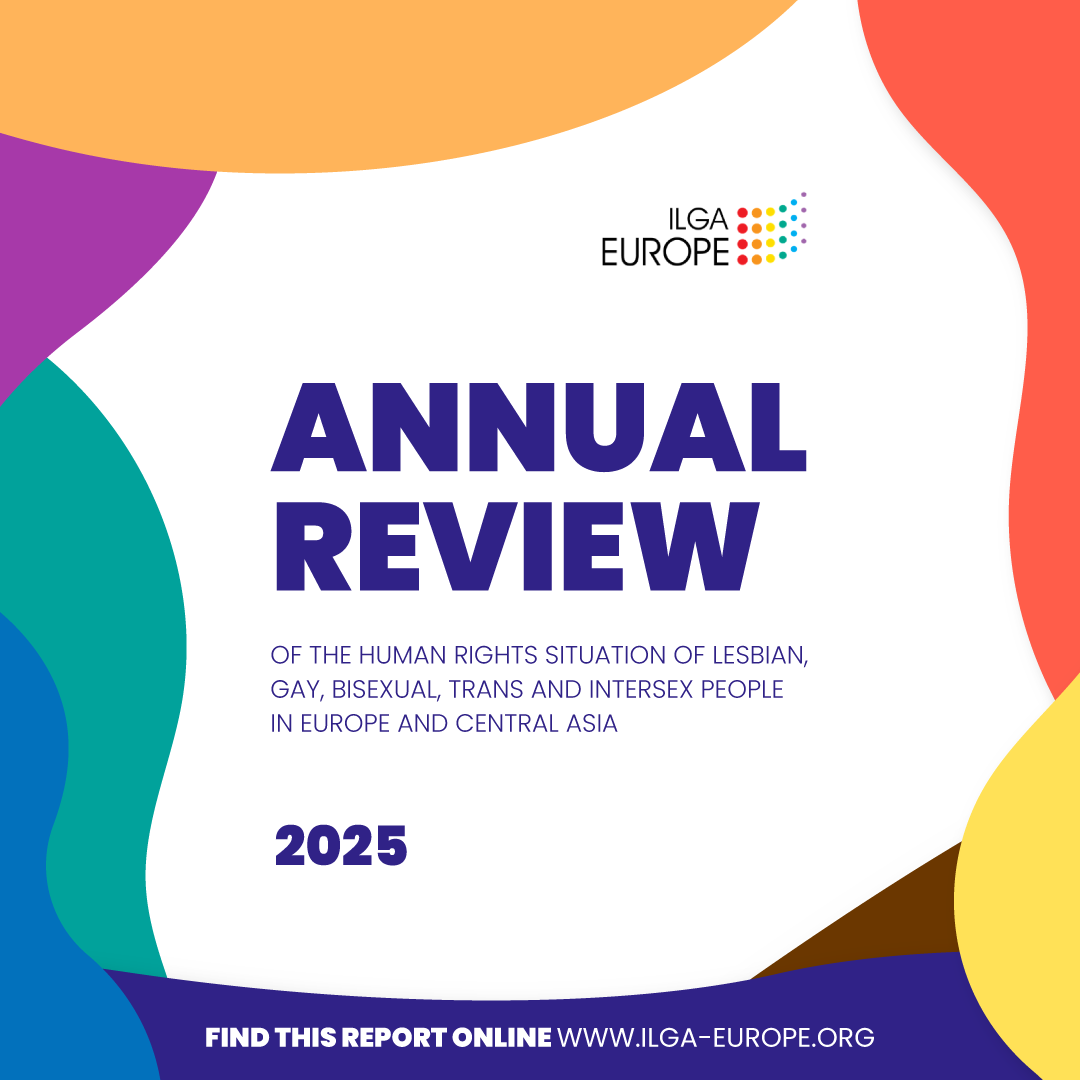
A major report published today identifies how LGBTI people are being weaponized to erode the foundations of freedom and democracy across Europe.
Released today, February 18, 2025, ILGA-Europe’s ‘Annual Review of the Human Right Situation of LGBTI People in Europe and Central Asia’ warns of a new era in which rising anti-LGBTI legislation threatens fundamental rights. Governments are fueling anti-LGBTI sentiment to push laws that restrict freedom of expression, association, and fair elections.
Governments are increasingly adopting tactics similar to Russia’s, forcing NGOs to register as ‘foreign funded’ to undermine their legitimacy, restrict funding, and stifle human rights activism. Known as ‘foreign agent’ laws, these measures are framed as protecting families and traditional values while often specifically targeting LGBTI NGOs. Last year in Bulgaria, Georgia, Hungary, Kyrgyzstan, and Montenegro, proposed foreign agent laws posed a direct threat to civil society.
Such legislation is enacted with or in the wake of so-called ‘LGBT propaganda’ laws that seek to criminalise visibility of LGBTI people, ban content, silence activists and restrict freedom of assembly, which have been either discussed, proposed or adopted in seven countries (Azerbaijan, Belarus, Bulgaria, Georgia, Kazakhstan, Romania, and Slovakia). These laws have been increasingly leveraged in education sectors, restricting or entirely preventing the inclusion of LGBTI issues in curricula and awareness-raising initiatives. In addition, attempts to introduce legislation excluding LGBTI topics from sex education were recorded in Bulgaria, Hungary, Italy, the Netherlands, Luxembourg, Norway, Romania, Russia and Slovakia.
In this context, LGBTI-phobic hate speech, sexism and misogyny are increasingly normalised, often fuelled by public figures, including political and religious leaders and state institutions. This is in turn driving an unprecedented surge in violence as hate crimes have reached record levels across the region.
The normalisation of hate is also providing justification for the blocking of healthcare for trans people. Andorra, Georgia, Hungary, Ireland, Moldova, Romania, Russia, and the UK have all put in place new barriers to care. Following the UK Cass Review, efforts to restrict trans healthcare for minors have emerged in Austria, France, Italy, Ireland, Poland, and the UK, putting trans lives further at risk.
As an increasing number of governments crack down, LGBTI people are being forced to flee—but Europe is closing its doors. Russia, Kyrgyzstan, and Turkey are intensifying persecution, and Turkmenistan is entrapping and torturing LGBTI individuals. Yet, many European countries, including Austria, Belgium, Bulgaria, Ireland and the UK, are denying asylum claims based on outdated, arbitrary assessments, with some officials rejecting applicants for not ‘seeming LGBTI enough.’
According to ILGA-Europe’s Executive Director, Chaber: “This report confirms what many of us have feared—we are entering a new era where LGBTI people have become the testing ground for laws that erode democracy itself. Across Europe and Central Asia, governments are using anti-LGBTI rhetoric to justify restrictions on free speech, civil society, and fair elections. What begins as an attack on LGBTI rights rapidly grows into a wider assault on the rights and freedoms of all individuals in society. This is not just an LGBTI issue; it is a crisis for human rights and democracy as a whole.”
ILGA-Europe’s Advocacy Director, Katrin Hugendubel added: “While governments are increasingly scapegoating LGBTI people to push restrictive laws, the courts both in the EU and across Europe are in turn upholding LGBTI human rights, with key judgements on procedures for LGBTI asylum seekers, anti-LGBTI hate speech, freedom of association and expression, legal gender recognition, and sexual and reproductive rights. But at this critical time, our leaders cannot simply leave the protection of human rights to the courts. Politicians at both the European and national levels must act decisively to counter the growing attacks on the cornerstones of democracy we are seeing. The normalisation of anti-LGBTI rhetoric is not just a threat to one community—it is now a proven direct assault on the democratic principles that underpin our societies.”
Further Information
Download a full analysis of the trends here
Read the ILGA-Europe’s Annual Review here
See up-to-date legislative developments in each country with ILGA-Europe’s Rainbow Map
EU Election results: The challenges & opportunities
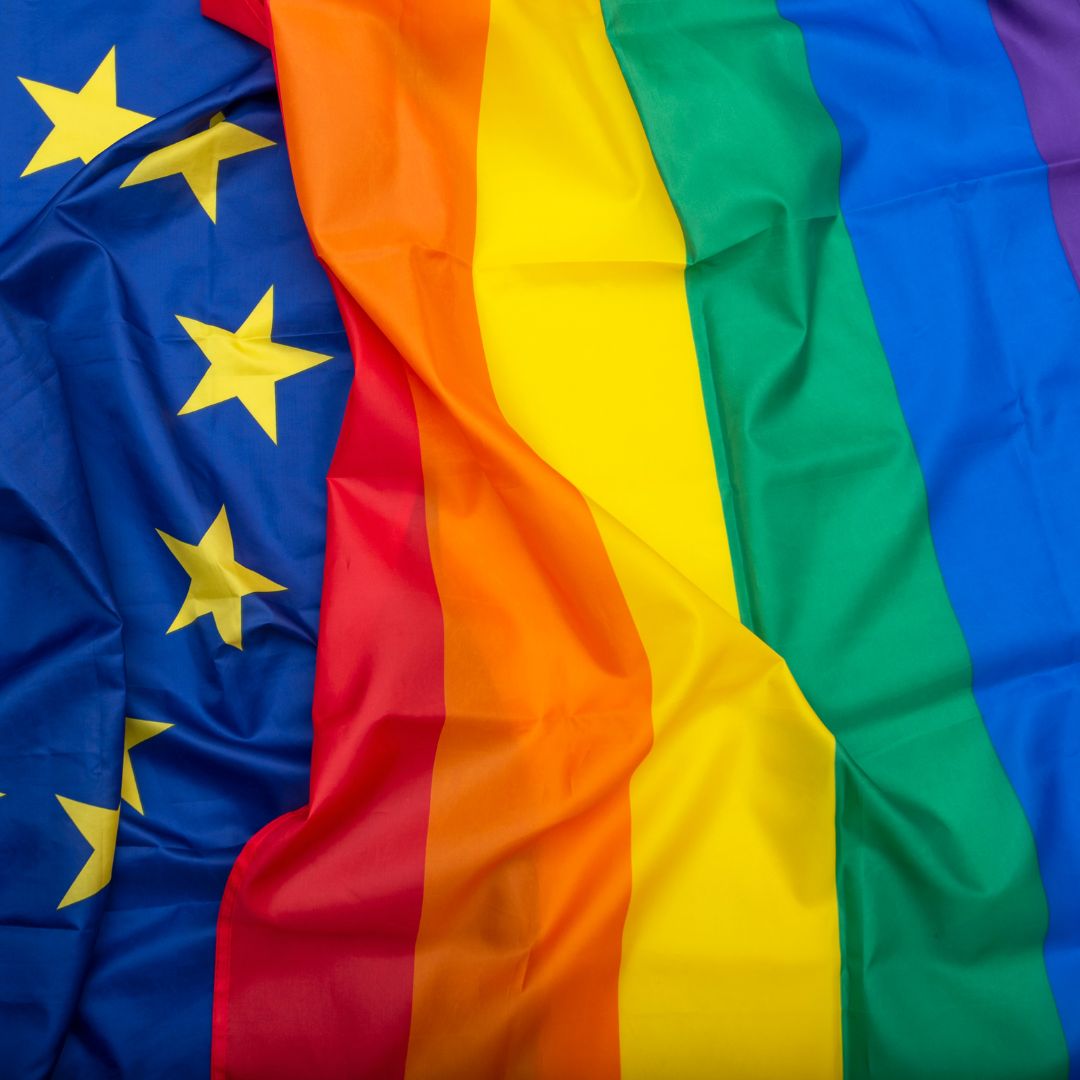
Today we dive into the mixed results of the European Elections, the shift to the far right in national elections, and the potential impact of it all on LGBTI human rights in the EU and beyond.
This blog is based on a conversation between our Advocacy Director, Katrin Hugendubel, co-chairs of the LGBTI Intergroup at the European Parliament, Marc Angel and Kim van Sparrentak, and activists Luca Dudits from Hungary and Roberto Muzzetta from Italy for a special Frontline podcast episode.
The results of the recent European Elections, which weren’t the radical shift to the far-right that was being predicted, revealed a mixed picture for LGBTI rights advocates. Marc Angel and Kim van Sparrentak expressed cautious optimism. While their personal victories and the re-election of LGBTI allies in their respective countries gave them cause for celebration, the broader rise of the far right across Europe remains a significant concern. Both stressed the need for strong collaboration with civil society and activists to counteract this trend and protect human rights.
Turning points in Hungary and Italy?
In Hungary, the challenged to Viktor Orbán’s government by Péter Magyar — a former ruling party insider-turned-rival — and his Tisza party marked a significant development. Magyar secured a substantial portion of seats, indicating a shift in the political dynamics that could open new avenues for advancing LGBTI rights. Luca Dudits from Hatter Society described the election as one of the most exciting campaigns in recent history, reflecting a growing political engagement among those opposed to Orban’s policies. However, she was cautious in her assessment of Magyar, who failed to mention LGBTI human rights in his campaign and made broad references to tackling propaganda. Whether this is the anti-LGBTI propaganda spread by Orbán or percieved ‘LGBTI propaganda’ remains to be seen. Dudits said that activists in Hungary will be engaged over the coming months in seeking to make contact with Magyar and his party to ascertain their commitment.
Italy also witnessed a blend of hope and caution. Roberto Muzzetta from Arcigay noted the substantial effort put into mobilising the LGBTI community by Italian activists, resulting in a greater presence of LGBTI allies in the European Parliament. Despite this, the far-right influence remains strong, particularly with Giorgia Meloni’s continued dominance. However, according to Muzzetta, the rise of progressive voices provides a counterbalance that could influence future policies and elections.
Challenges from the far-right surge
The election results across Europe show a worrying trend: the significant gains made by far-right parties. This shift is not only visible at the EU level but is also permeating national politics in countries like France, Germany, Austria, and the Netherlands. Such a trend poses direct threats to the advancement of human rights, particularly for the LGBTI community.
Kim van Sparrentak and Marc Angel, re-elected MEPs and co-chairs of the LGBTI Intergroup, expressed their concerns about this political shift. They emphasised the need for strong collaboration with civil society and activists to counteract the far-right rhetoric. They highlighted the importance of building majorities with allies who support human rights and resist anti-gender rhetoric, warning against the potential realignment within the European People’s Party (EPP) that could jeopardise LGBTI rights.
Strategic responses and solidarity
A strategic and united response to the rise of far-right politics is crucial. Marc Angel stressed that the EPP must avoid collaboration with far-right populists to maintain the integrity of the European Parliament’s commitment to fundamental rights and the rule of law. He called for the parliament to remain a strong advocate for democracy, particularly given the anticipated conservative shift within the European Commission.
Civil society and grassroots activism were identified as crucial elements in this struggle. The tireless work of activists on the ground, often in hostile environments, provides the backbone for advancing LGBTI rights. Kim van Sparrentak underscored the importance of maintaining strong networks within the European Parliament and across member states to support these activists.
Roberto Muzzetta emphasised the importance of consistent and balanced human rights advocacy by European institutions. He called for careful language use by politicians to avoid further polarisation and to support inclusive discourse on LGBTI issues.
Looking forward with hope
Despite the challenges, the resilience and determination of activists and supportive politicians offer some hope. Both Marc Angel and Kim van Sparrentak are committed to fostering a strong LGBTI intergroup in the European Parliament and working closely with activists to continue the fight for equality. They stressed the importance of mobilising the silent majority to stand against far-right rhetoric and support inclusive policies.
Luca Dudits and Roberto Muzzetta echoed these sentiments, highlighting the value of international solidarity and learning from each other’s experiences. They stressed the need for continued support from European institutions and the importance of framing LGBTI rights in terms that resonate with broader values like safety, love, and freedom.
The political landscape in Europe is rapidly evolving, presenting both opportunities and challenges for the LGBTI community. While the rise of the far-right is concerning, the solidarity and strategic efforts of activists and supportive politicians provide a pathway forward. By continuing to build alliances, advocating for inclusive policies, and mobilising broader support, there is hope for advancing LGBTI rights across Europe.
Listen to the podcast here.
Joint Statement: Milestone for trans and intersex rights in Europe
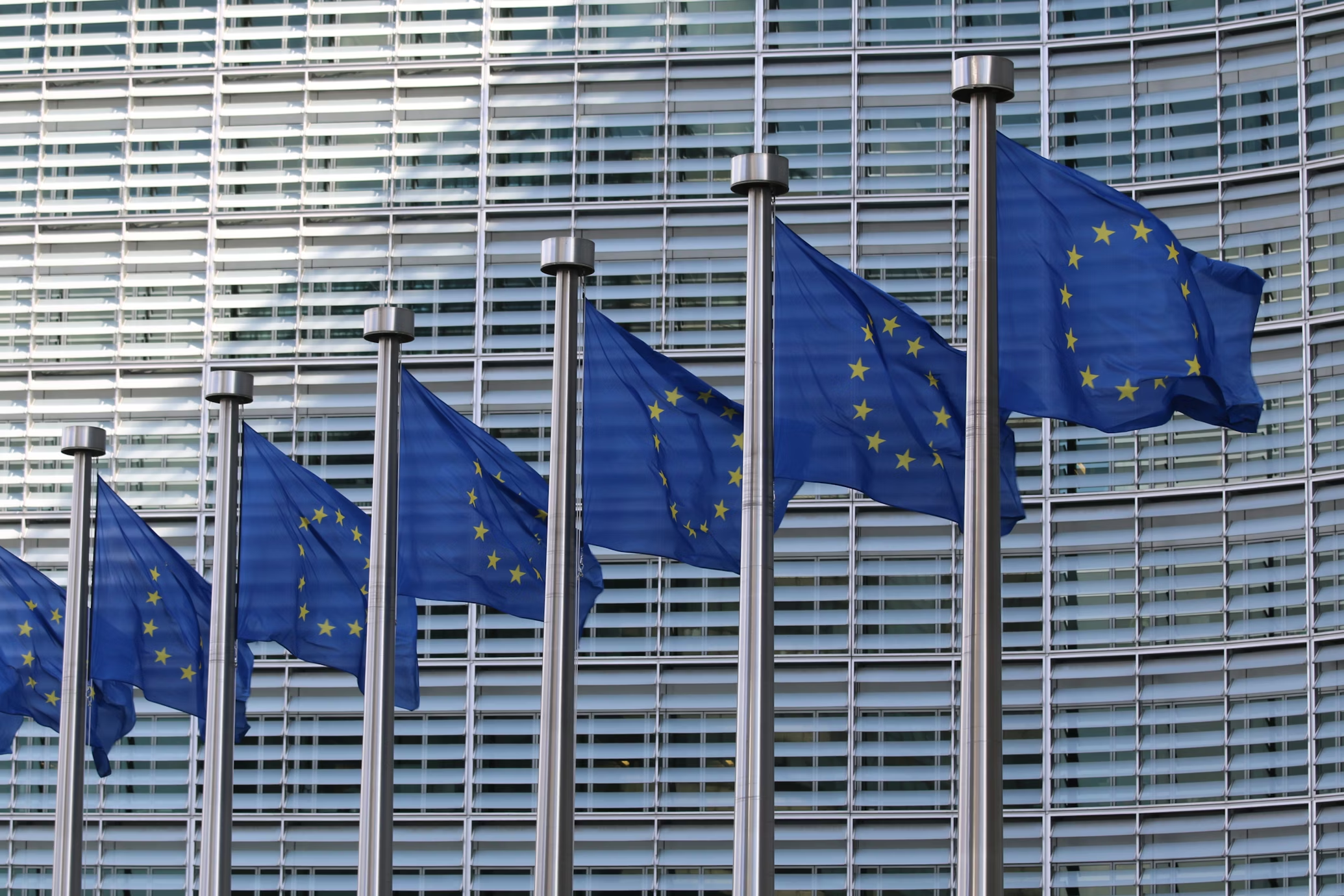
ILGA-Europe, TGEU, OII Europe, IGLYO and EL*C jointly welcome the inclusion of SOGIGESC grounds in new EU Directive on minimum standards for equality bodies
On 7 May 2024, two new directives on minimum standards for equality bodies were officially adopted by the EU. One of the directives includes in its recitals and articles the grounds of gender expression, gender identity and sex characteristics in addition to sexual orientation. This marks the first time sex characteristics have been mentioned explicitly in an EU directive, and the second time gender identity and gender expression have been mentioned in an EU directive.1 This is an important milestone for the protection of LGBTI people in EU legislation, and follows two years of joint advocacy on these directives by OII Europe, TGEU, ILGA-Europe, EL*C and IGLYO.
The two new directives amend existing EU laws in order to add provisions to strengthen the role and independence of equality bodies in the EU, setting minimum standards regarding their mandates, tasks, independence, structure, powers, accessibility and resources. Both directives are subject to EU primary law including the Treaties and the Charter of Fundamental Rights (CFR). Article 19 TFEU and Article 21 CFR include sexual orientation in the list of protected grounds against discrimination, therefore both new directives cover the grounds of sexual orientation as regards the mandates of equality bodies in the EU.
However, we need to go beyond this to properly address the reality of discrimination. Limiting equality bodies’ mandates to working only on the grounds of discrimination explicitly named in the EU treaties means that many causes of discrimination are left out, remaining unrecognised and therefore not properly addressed. In the case of LGBTI people, who face discrimination based on their sexual orientation, gender identity, gender expression or sex characteristics (or a combination of these grounds), not including gender identity, gender expression and sex characteristics in the mandates of equality bodies means that equality bodies cannot properly address discrimination faced by trans and intersex people. In a time when discrimination against LGBTI people is on the rise, this is a welcome move.
Together, OII Europe, TGEU, ILGA-Europe, EL*C and IGLYO advocated for references to the grounds of gender expression, gender identity and sex characteristics to be included in both new directives.
Directive 2022/0401 amends directives in the field of equal treatment between persons irrespective of their racial or ethnic origin, equal treatment in matters of employment and occupation between persons irrespective of their religion or belief, disability, age or sexual orientation, equal treatment between women and men in matters of social security and the access to and supply of goods and services. This new directive required unanimous agreement in the EU Council. Despite references to gender identity, gender expression and sex characteristics being included in the text proposed by the European Parliament, due to opposition from a small number of EU countries, these references did not make it into the final text.
However, for the second Directive, the references did make it into the final agreed text. Directive 2022/0400 amends existing Directives 2006/54/EC and 2010/41/EU which cover the implementation of the principle of equal opportunities and equal treatment of men and women in matters of employment and occupation, including self-employment. This directive required qualified majority voting in the EU Council. Therefore, the references to the grounds of gender identity, gender expression and sex characteristics were included in the adopted text, in the context of the definition of a victim of discrimination:
Recital 23
“In addition to prevention, a central task of equality bodies is to provide assistance to victims of discrimination. Victims should be understood to encompass all persons who consider that they have experienced discrimination as referred to in Article 4 of Directive 2006/54/EC or in Article 4 of Directive 2010/41/EU, irrespective, for example, of their socio-economic status, political opinion, age, health, nationality, residence status, language, colour, level of literacy, gender, gender identity, gender expression or sex characteristics.”
Article 6
“Member States shall ensure that equality bodies are able to provide assistance to victims as set out in paragraphs 2 to 4. For the purposes of this Directive, ‘victims’ mean all persons, irrespective, for example, of their socio-economic status, political opinion, age, health, nationality, residence status, language, colour, level of literacy, gender, gender identity, gender expression or sex characteristics, who consider that they have experienced discrimination within the meaning of Article 4 of Directive 2006/54/EC or Article 4 of Directive 2010/41/EU.”
What’s next?
This achievement marks a milestone in the recognition of trans and intersex people in EU legislation and policy-making, and will contribute to further protection against discrimination for LGBTI people by equality bodies across the EU. We also extend our thanks to Equinet, the European Network of Equality Bodies, which led a successful campaign on these directives and supported our calls for the inclusion of the grounds of gender identity, gender expression and sex characteristics, based on the reality of discrimination against LGBTI people in the EU, as well as existing EU policy, legislation, and decisions of the EU Court of Justice. We will now work together with relevant authorities on the effective transposition of the equality bodies directives and we will continue to advocate for more comprehensive protection for LGBTI people in EU policy and legislation.
Navigating Equality: Unveiling the 2024 Rainbow Map
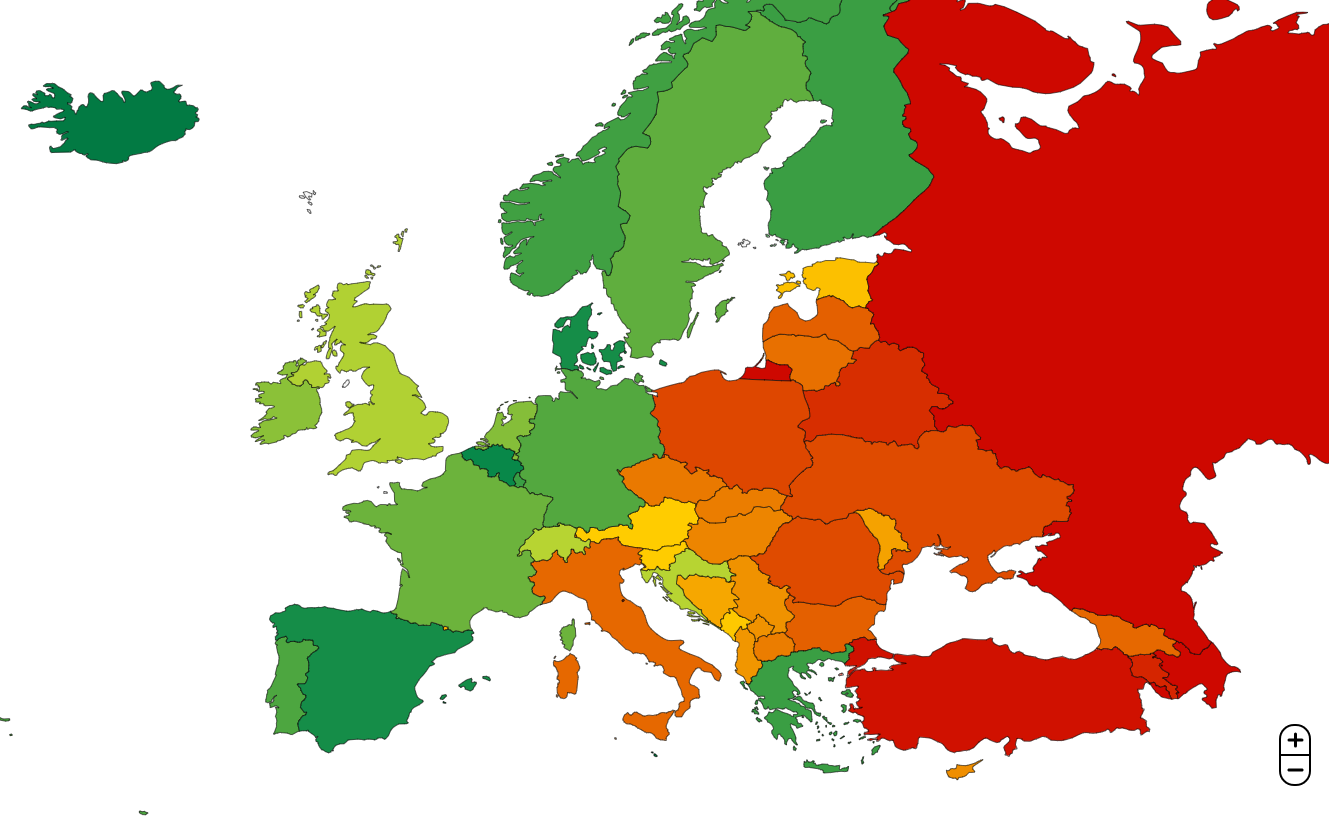
In the dynamic world of human rights advocacy, working together is essential. Last week marked a significant event of mass collaboration – the release of the 16th annual Rainbow Map of LGBTI human rights in Europe
The purpose of the Rainbow Map
At its core, the Rainbow Map is a tool of empowerment, designed to equip advocates with the knowledge needed to achieve change. With categories ranging from equality and non-discrimination to asylum rights, this resource serves as a compass, illuminating the path towards progress. Armed with the Rainbow Map, activists can leverage its insights to hold governments accountable, showcasing comparative data to drive policy reform and legislative action.
Stories of struggle and triumph
Behind every data point lies a narrative – a story of struggle and triumph, of setbacks and victories. The Rainbow Map is not merely a collection of statistics; it is a testament to the activism of LGBTI people across Europe for real change. Through the qualitative lens of ILGA-Europe’s Annual Review, the numbers come to life, providing context and depth to each country’s journey towards equality. When browsing each country in the Rainbow Map, you will find the Annual Review for the country under a number of themes.
The power of collaboration
The journey to publish the Rainbow Map each year is not a tale of an organisation in Brussels working alone. It’s a true example collective determination, and a display of LGBTI and allied teamwork across Europe, showcasing the strength of unity during tough times. More than 250 people, including activists, lawyers, and policymakers, contributed their expertise and passion to this project, which has become a go-to for anyone wanting to understand the development of LGBTI rights in Europe over the past 16 years. Their dedication and commitment to justice is woven into the very fabric of the Rainbow Map. This year, we made substantial progress by revamping the Rainbow Map’s interface and seamlessly integrating it with our ILGA-Europe website. This revitalisation reflects our commitment to continuous improvement, ensuring that users have access to the most user-friendly and informative platform possible.
Honouring the faces behind the numbers
As we continue our journey towards equality, equipped with the Map, let us remember the people behind the data – the activists who fight the good fight, the lawyers who litigate, the policymakers who advocate. Let’s honour their resilience, courage, and unwavering belief in a better tomorrow. As we navigate the complex landscape of LGBTI rights, let the Rainbow Map be our guidance, illuminating the path towards new successes.
Joint statement: “Building an inclusive European Union of Equality”
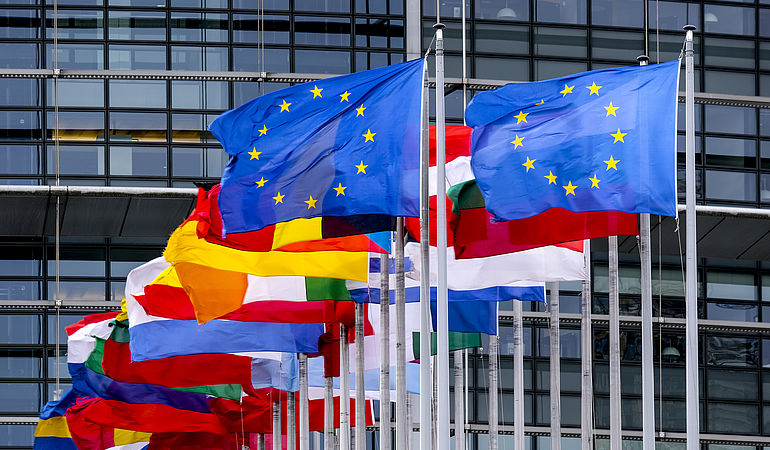
We, the undersigned equality and anti-discrimination organisations, call on the European Union’s leaders and European Institutions to ensure equality, anti-racism, and fundamental rights are a priority during the next legislative mandate.
We noted the advances in Equality which have been made by the European Union during this mandate. The appointment of the first-ever Commissioner for Equality was a welcome and much-needed initiative. It has shown that the European Commission is committed to advancing the values of equality enshrined in Article 2 of the Treaty on the European Union and to its duties under Article 10 of the Treaty on the Functioning of the European Union.
Equality and non-discrimination policies and initiatives became more visible and were addressed through several proposals such as standards for equality bodies, a Directive to combat violence against women, a legislative proposal on the European Disability Card and Parking Card, the action plan against racism, and a proposal for cross-border recognition of parental rights. These initiatives were coupled with strategies on gender equality, LGBTIQ and disability, as well as the EU Roma strategic framework and a Green Paper on Ageing.
However, the EU is far from being a Union of Equality- this is a work in progress, and right now, we witness rising backlash, racial injustice, inequality and discrimination. This needs urgent attention both at the EU and national levels.
For this, we specifically call on the European Union to put in place comprehensive legal protection against discrimination in the EU. We need to guarantee equality of treatment regardless of who you are or where you live in the European Union.
We also call on specific actions to guarantee that the European Union’s Institutions have adequate resources and staffing to prioritise and mainstream equality and non-discrimination, with special attention to vulnerable groups and intersectional discrimination:
- Appoint an EU Commissioner with a strong mandate for Equality and Fundamental Rights.
- Strengthen the European Commission’s services working on equality, non-discrimination and anti-racism, especially by establishing a new Directorate-General for Equality and Fundamental Rights.
- Revise and introduce strong strategies on all grounds under the Equality Framework beyond 2025 and ensure their mainstreaming in all policy areas.
- Ensure that the Equality Task Force has a strong mandate to ensure cooperation between different services on the implementation of the Equality Frameworks and that it works transparently and in close consultation and cooperation with European Equality networks.
- Host an annual “Equality Forum,” gathering policymakers, civil society, and other interested actors to evaluate and develop initiatives for realising a Union of Equality. The Forum should focus particularly on intersectional equality.
- Create an EU Council formation on Equality.
- Ensure the next EU budget properly funds civil society organisations working on equality, non-discrimination and anti-racism.
- Ensure discrimination is also addressed in the work of the EU in external action, international cooperation and humanitarian action.
We remind leaders that all initiatives must meaningfully involve equality organisations, anti-racism organisations and organisations representing the groups most subject to discrimination.
It is essential that the Union’s decision-making process is transparent, and organisations are properly resourced and supported to guarantee their active involvement.
It is also fundamental to ensure that staff working at the EU Institutions properly reflects the European population, not only in terms of nationality but also in terms of diversity of gender, race, ethnic or social origin, membership of a national minority, disability, age, sexual orientation, gender identity, gender expression, and variations of sex characteristics. We call on specific action to ensure it and to guarantee training to all staff training on equality and non-discrimination.
Only by working together will the European Union truly become a Union of Equality that reflects its motto of “United in Diversity”.
The undersigned organisations remain committed to supporting the European Institutions in achieving this crucial objective.
Signatories
- European Disability Forum
- ILGA-Europe
- AGE Platform Europe
- European Network Against Racism
- ERGO Network
- OII Europe
- IGLYO
- EL*C
- TGEU – Transgender Europe
Additional Information
- Joint statement: “Building an inclusive European Union of Equality” in Word
- Joint statement: “Building an inclusive European Union of Equality” in PDF
Organisations’ work on the European elections:
- European Disability Forum: “”Building an inclusive future for persons with disabilities in the EU”
- ILGA Europe: “Come out 4 Europe”
- AGE Platform Europe: AGE Manifesto for the 2024 European Parliament elections
- European Network Against Racism: “A Europe for All”
- ERGO Network: “End Racism to build a stronger Europe”
Activists on Accession to the EU
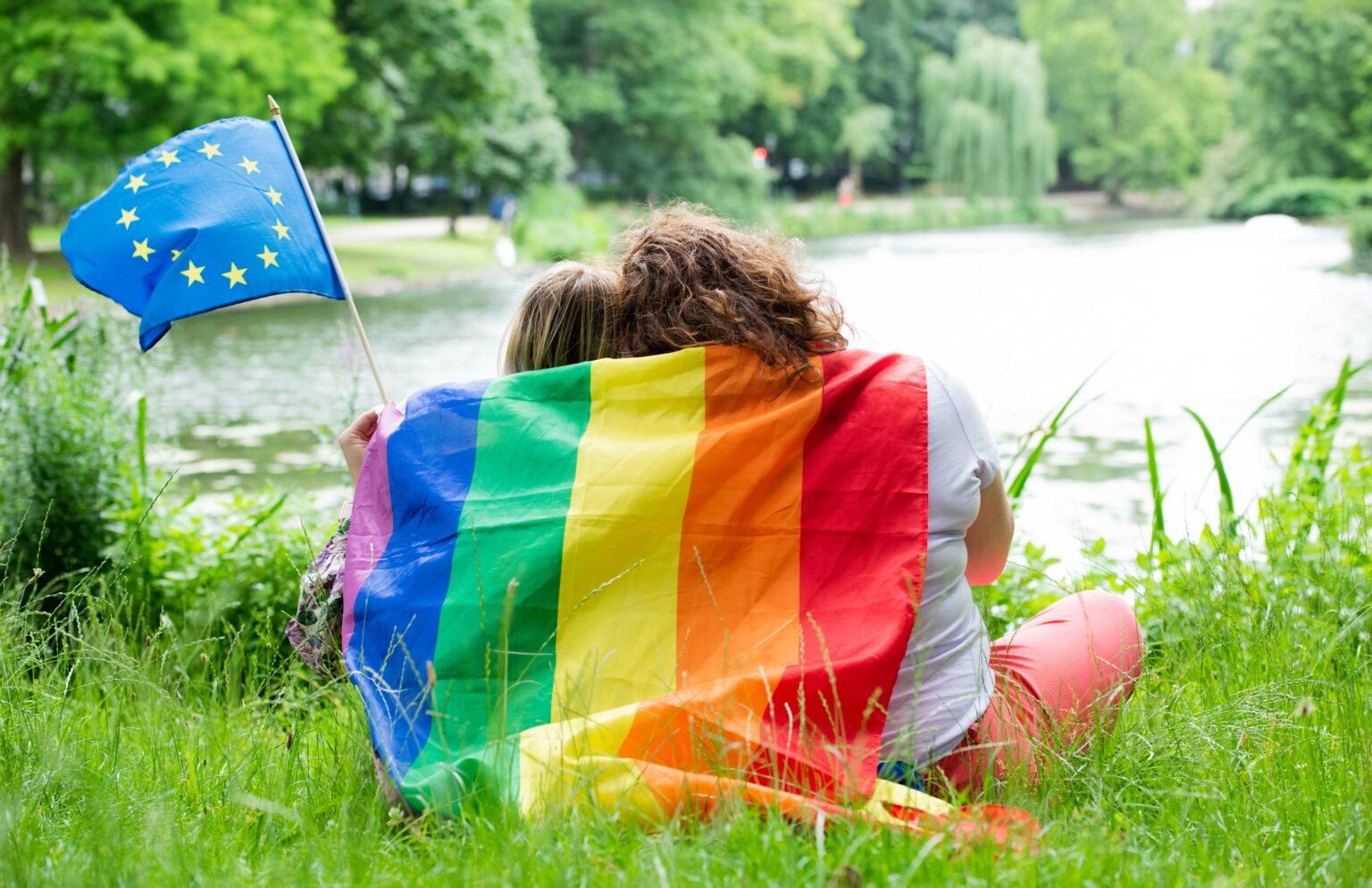
Although achieving EU membership can take several years, even decades, the accession process can already have a positive impact in LGBTI people in a candidate country. We speak to activists in the latest candidates, Ukraine and Moldova, and from Montenegro, which has been a candidate since 2010.
Since its foundation, the EU family has kept its doors open to new members who share the same values. They must be committed to apply, support and promote the EU’s democratic principles and practices in their territories and overseas. Once the request of a European state to join the EU has been agreed by current EU member states, the accession process begins. The benefits of joining are multiple, including access to billions of EU funding, visa free access to EU countries, and Free movement of labour, goods, services and capital.
During the process, the candidate country must satisfy a number of political and economic criteria as well as administrative and institutional capacity.
These criteria include respect for the human rights of LGBTI people. In our latest podcast at The Frontline we spoke to LGBTI activists in Ukraine and Moldova, the latest countries to have been granted candidate status, and in Montenegro, which has been a candidate member since 2010.
Lenny Emson, Ukraine
Lenny is the Director of KyivPride and a board member of Transgender Europe. Earlier this year, shortly after Russia invaded Ukraine in late February, the country applied for membership of the EU and it was granted candidate status just a few months later, along with Moldova. Lenny says the accession process “brings a bit of hope” to LGBTI people in a country that is still battling against Putin’s invasion.
“In practice this could mean the adoption of marriage equality and anti-hate legislation. Right now, if a person in a same-sex relationship gets hurt in the battlefield, their partner will not have the right to make medical decisions. This is why marriage equality in Ukraine is one of the priorities for LGBTI activists at the moment and the EU candidate status is pushing it up in the political agenda.~
Before the war started, anti-hate legislation to protect LGBTI people from biased-motivated crime was already in the makings. According to Lenny, its adoption would would be gaining a “right we’ve been fighting for in the five past years”.
Now more than ever, LGBTI activists advocate for the protection of sexual orientation and gender identity grounds as “anti-LGBTI groups that existed before the war now feel pretty much okay,” as Lenny explains. “Since the war started over 100 cases of LGBTI-phobic crimes have been reported to civil society organisations.”
Anastasia Danilova, Moldova
Anastasia is the director of GENDERDOC-M and a board member of ILGA-Europe. Just a few days after Ukraine’s request in early March 2022, Moldova applied for EU membership. The country also became candidate member in June.
“Definitely it’s a great opportunity for LGBTI people in the country,”. Anastasia says. There have been already some positive changes linked to the EU accession, like the ratification of the Istanbul Convention, which entered into force in the country in May, and the adoption of anti-hate crime legislation which includes sexual orientation and gender identity as protected grounds.
“Implementation will be a huge issue, but it’s already a big step. Until now, because of lack of legislation, crimes against LGBTI people were not registered in the official statistics.”
For Moldovans, the EU accession talks are also a security matter as pro-Russian parties try to destabilise the progressive government. “EU enlargement is the only chance for the future, for LGBTI people to enjoy equality,” Anastasia explains.
Danijel Kalezić, Montenegro
Danijel worked for years as the Executive Director of Queer Montenegro , but has now become the Co-director of ERA, the LGBTI Equal Rights Association. 12 years after Montenegro was granted EU candidate status, Danijel’s insights on the process and its impact are different to those from Lenny and Anastasia.
He sees a gap between “the paper” and the practice. “In many countries the EU enlargement is been used to improve the human rights framework. Montenegro is a good example of this. This year the country made it to the top-10 of the Rainbow Map and Index and has made major legislative changes in recent years to protect the rights of LGBTI people, including same-sex unions. However, if we look to what’s happening in real life, [the change] is not followed.”
This is because there are no communication campaigns following the legislative changes. “To enjoy all the rights that we have now on paper, we need to be able to change hearts and minds. And that change is not going as fast as the change of the legal framework,” Danijel says.
The EU candidate status can be “an amazing boost for the human rights of LGBTI people, to start conversations, but I would like to see more pressure from the EU on the government and stakeholders to talk about the importance of this process.”
Danijel points out to the need of speaking of human rights not only important to become a member of the EU, but above all, for all citizens of the country.
Danijel, Anastasia and Lenny are all guests on our latest two-part podcast episode exploring the effect of the EU accession process on candidate countries, alongside former member of European Parliament, Marije Cornelissen, who has worked extensively on the accession process, and ILGA-Europe’s advocacy director, Katrin Hugendubel, to talk about our long history of working alongside candidate countries to advocate for LGBTI rights and equality.
Rainbow Europe Map shows countries pushing forward with LGBTI rights as democracy is confronted
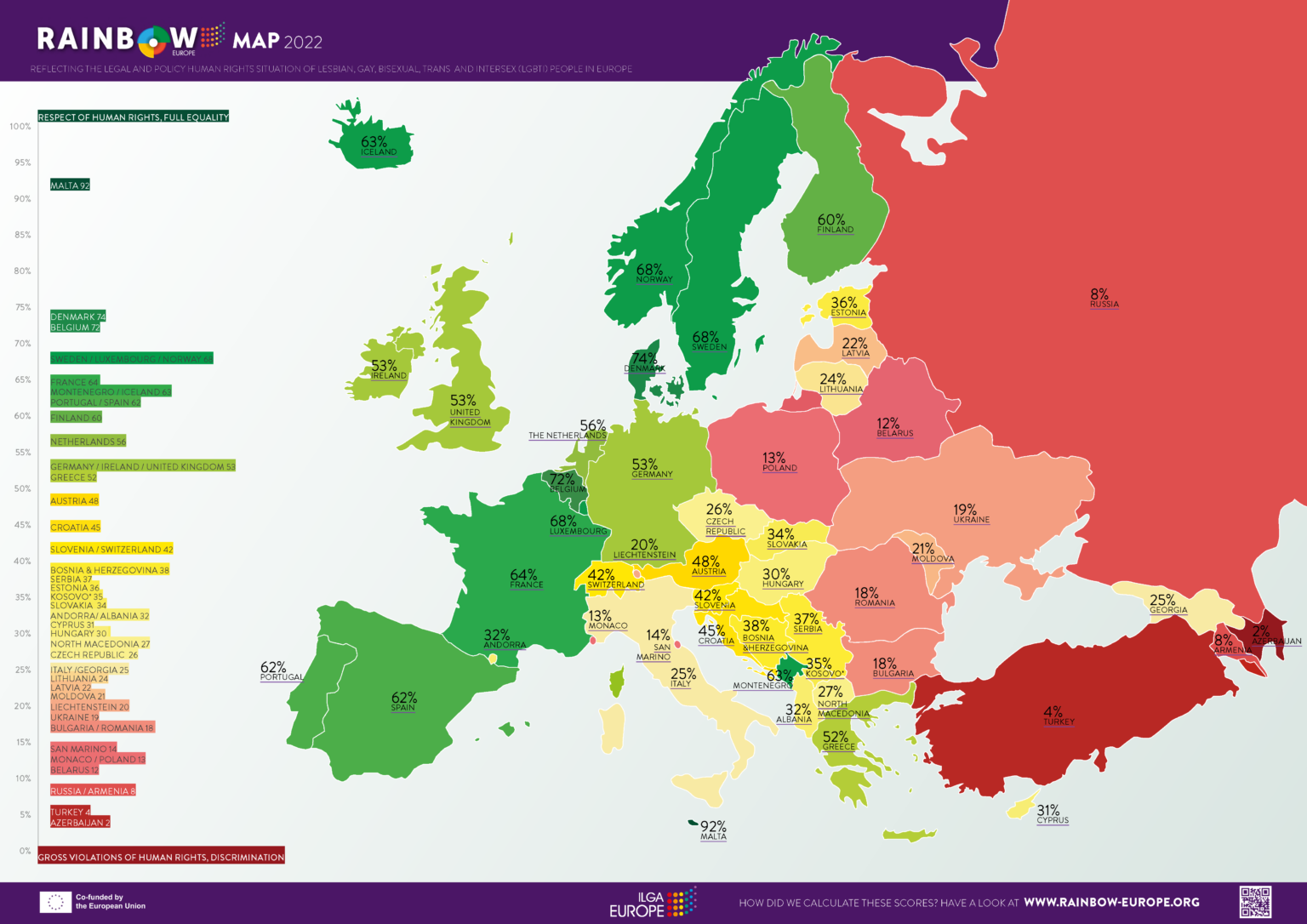
Our brand new Rainbow Map shows steps forward in LGBTI rights in several countries, spelling out that equality is at the core of democracy in Europe. But while some are pushing forward, others continue to instrumentalise LGBTI discrimination to erode freedom.
ILGA-Europe’s 2022 Rainbow Map, which ranks the legal and policy situation of LGBTI people in 49 countries, shows that a new dynamic has appeared in the last 12 months to fill in the gaps that exist around LGBTI equality, and push standards at a time when democracy in the region is being challenged.
After several years reporting a disturbing standstill on LGBTI rights, the latest Rainbow Europe Map and Index identifies steps forward in LGBTI rights in several countries, with the clear understanding that equality and freedom for all are at the core of democracy. But while some are pushing forward, others continue to exploit anti-LGBTI sentiment as part of an agenda to erode freedom and equality.
Here are some examples of this positive movement for LGBTI rights across Europe:
- Denmark is taking the lead in filling in anti-discrimination gaps in current legislation, including the equal treatment law, which covers health, education, employment, provision of goods and services, and the penal code to include sexual orientation, gender identity, gender expression and sex characteristics (SOGIESC) as aggravating factors in hate crime.
- Iceland has legally recognised trans parenthood.
- Germany has introduced a ban on intersex genital mutilation.
- France banned so-called ‘conversion therapy’ based on sexual orientation and gender identity.
- There is positive legislative movement in Greece, Latvia, Lithuania, Serbia, Slovakia, and Slovenia, countering the narrative that there is an East/West divide on LGBTI rights in Europe, providing governments in these countries with strong opportunities to underpin democracy through adoption and implementation.
But it’s not all good news. Here are the countries sliding backwards on LGBTI rights:
Some countries that once were leading lights on LGBTI rights are slipping down the ladder, while others are in danger of following the precedent of countries where LGBTI rights are being instrumentalised for political gain.
- The United Kingdom has suffered a significant drop in ranking, going from 10th to 14th place, losing points as evidence was brought forward this year that the equality body is not, as set out in its mandate, effectively protecting on the grounds of sexual orientation and gender identity. This comes at a time of widespread political and media anti-trans sentiment, while the British government is not moving on long-promised reforms on gender recognition and banning so-called ‘conversion therapy’ for all.
- Bulgaria and Romania are now not far off the lowest ranking in the EU, which currently belongs to Poland. All three countries are witnessing a rise of official anti-LGBTI sentiment.
- A stark example of this is Romania losing points due to authorities’ obstruction of freedom of assembly by banning and punishing Pride events.
- Meanwhile, Hungary moved down three places, mainly because in 2021 its parliament adopted a ban on the “portrayal and the promotion of gender identity different from sex at birth, the change of sex and homosexuality” for persons under 18.
- In nearly half of the countries ranked, LGBTI people are not adequately protected against discrimination and violence for LGBTI people. 20 countries out of 49 still have no protection against hate crime based on sexual orientation, while 28 countries have no protection against violence based on gender identity.
A few words on Ukraine
It is worth mentioning that in Ukraine, before the Russian invasion, there was cautious optimism from LGBTI activists about the way forward, as seen in our Annual Review. Several politicians were willing to discuss legislative rights. Post-war this should provide the country with a bedrock on which to build a legislative framework that protects all its citizens, and a society that values LGBTI people as part of its democratic composition.
The LGBTI movement is evolving and so it is our Rainbow Map
The ILGA-Europe Rainbow Map ranks 49 countries in Europe on a scale between 0% (gross violations of human rights, discrimination) and 100% (respect of human rights, full equality). This year’s map also tells the story of an evolving movement. A brand-new category, “Intersex bodily integrity,” has been introduced. This is because for our movement in Europe, equality and non-discrimination laws, legal gender recognition, bodily integrity, protection from hatred and violence, family rights, and protection of asylum seekers are all interconnected and equally essential for the full enjoyment of human rights for LGBTI people.
The Frontline: Mapping LGBTI Rights in Europe
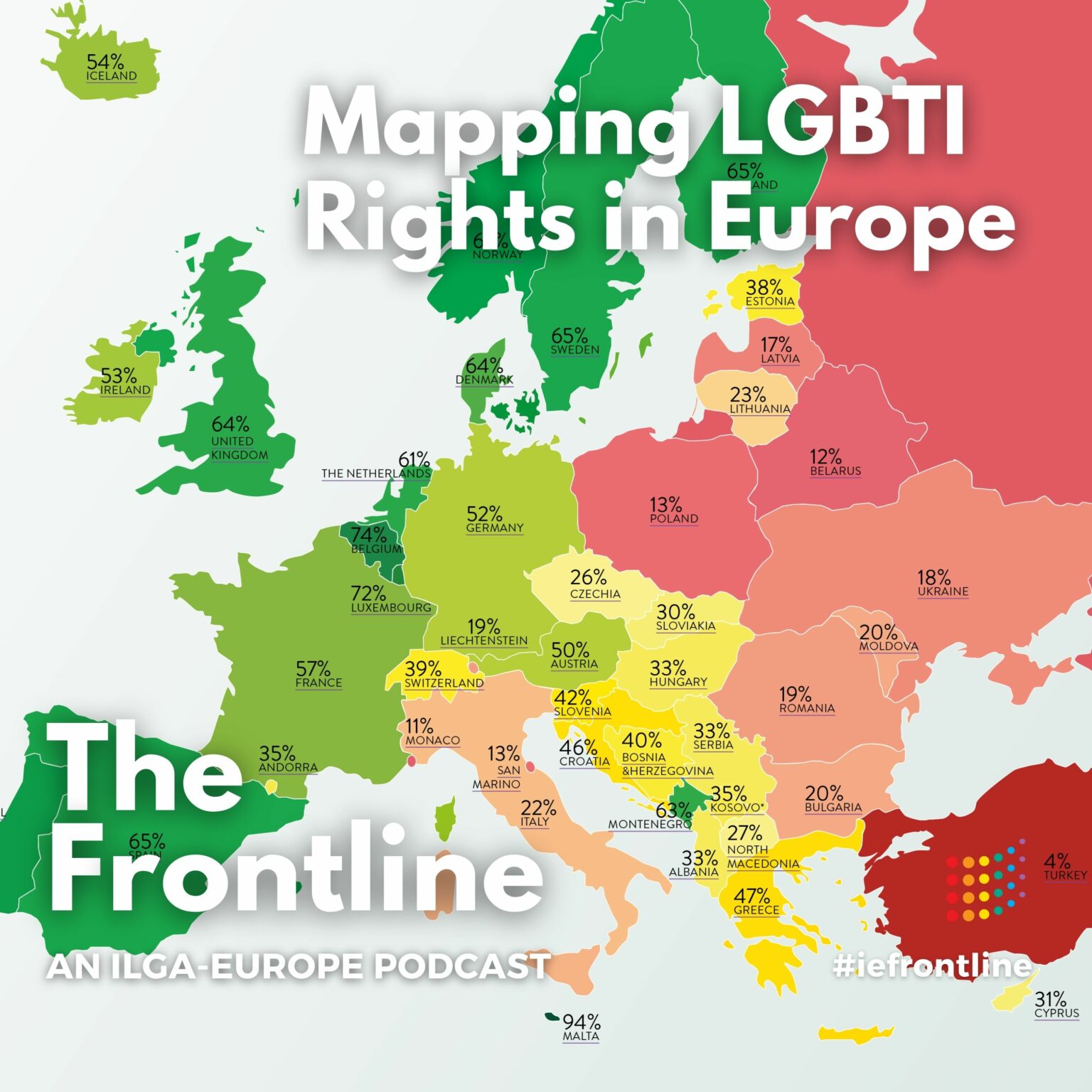
Every year, Rainbow Europe ranks all 49 European countries based on the laws and policies in each to ensure equal rights and protection for LGBTI people. Countries are ranked from zero percent to one hundred, with zero representing gross violations of human rights and discrimination and one-hundred representing full respect for human rights and equality.
The past 12 months have marked an unprecedented year in the map’s 12-year history, with almost no positive legislative change for LGBTI people in Europe. With us to discuss this disturbing stand-still, on both European and national levels, and the ways forward both at European and national levels, are ILGA-Europe’s Executive Director, Evelyne Paradis, our colleague, Bjorn Van Roozendaal, Alexa Moore from Transgender NI in Northern Ireland, Alexa Moore, and Kaspars Zalitis from Mozaika in Latvia.
Listen below or click here to listen and subscribe to The Frontline on your favourite podcast platform.
Rainbow Family Rights in Europe – Part 6: The Future
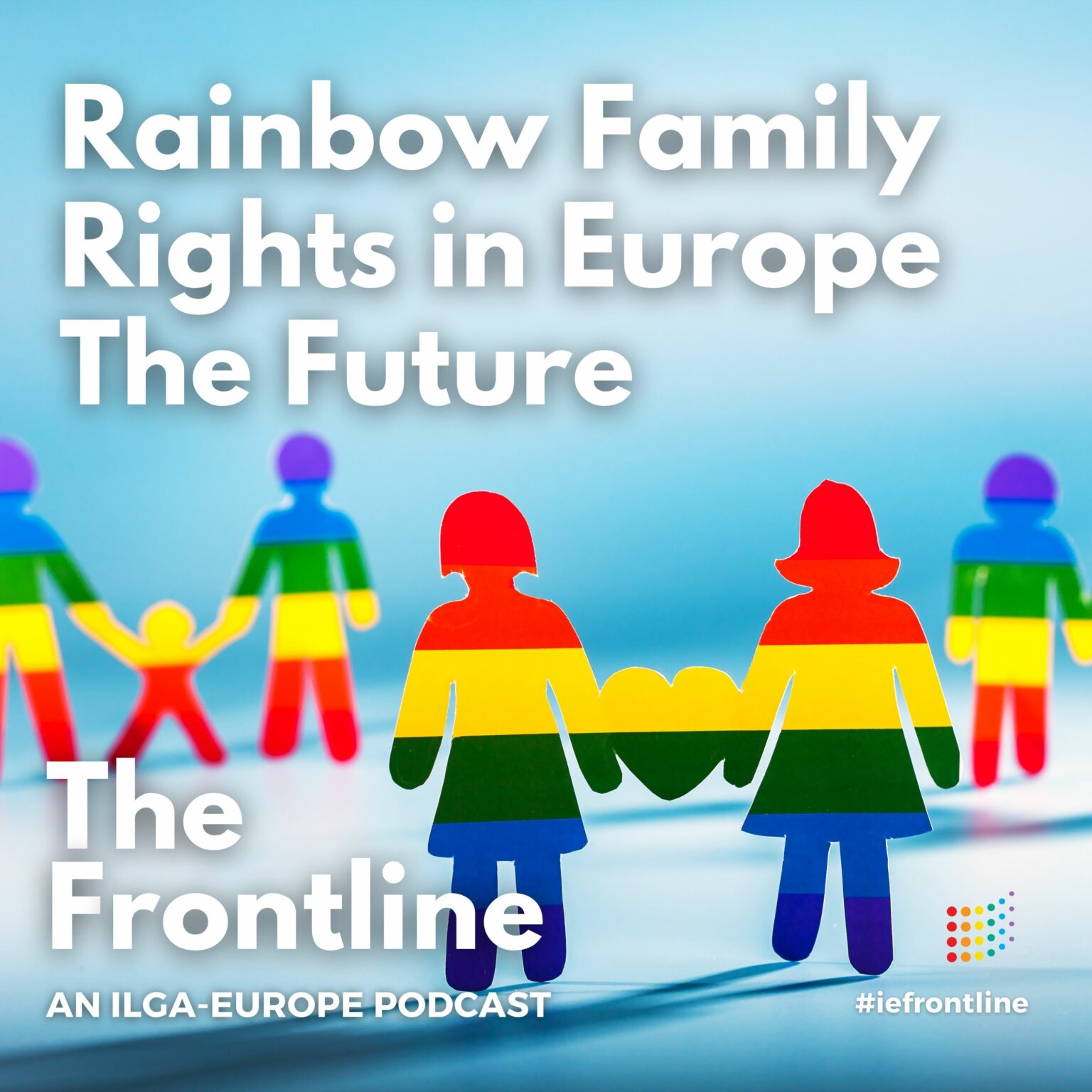
ILGA-Europe’s advocacy director, Katrin Hugendubel and Björn Sieverding from the Network of European LGBTIQ Families explore the issues coming down the line in terms of rainbow family rights, including direct child-parent recognition from birth, equal opportunities for children to find new parents by adoption or foster care, access to ART (including funding), and multi-parenting possibilities.
The Frontline: LGBTI communities in Europe: Pushed to the brink
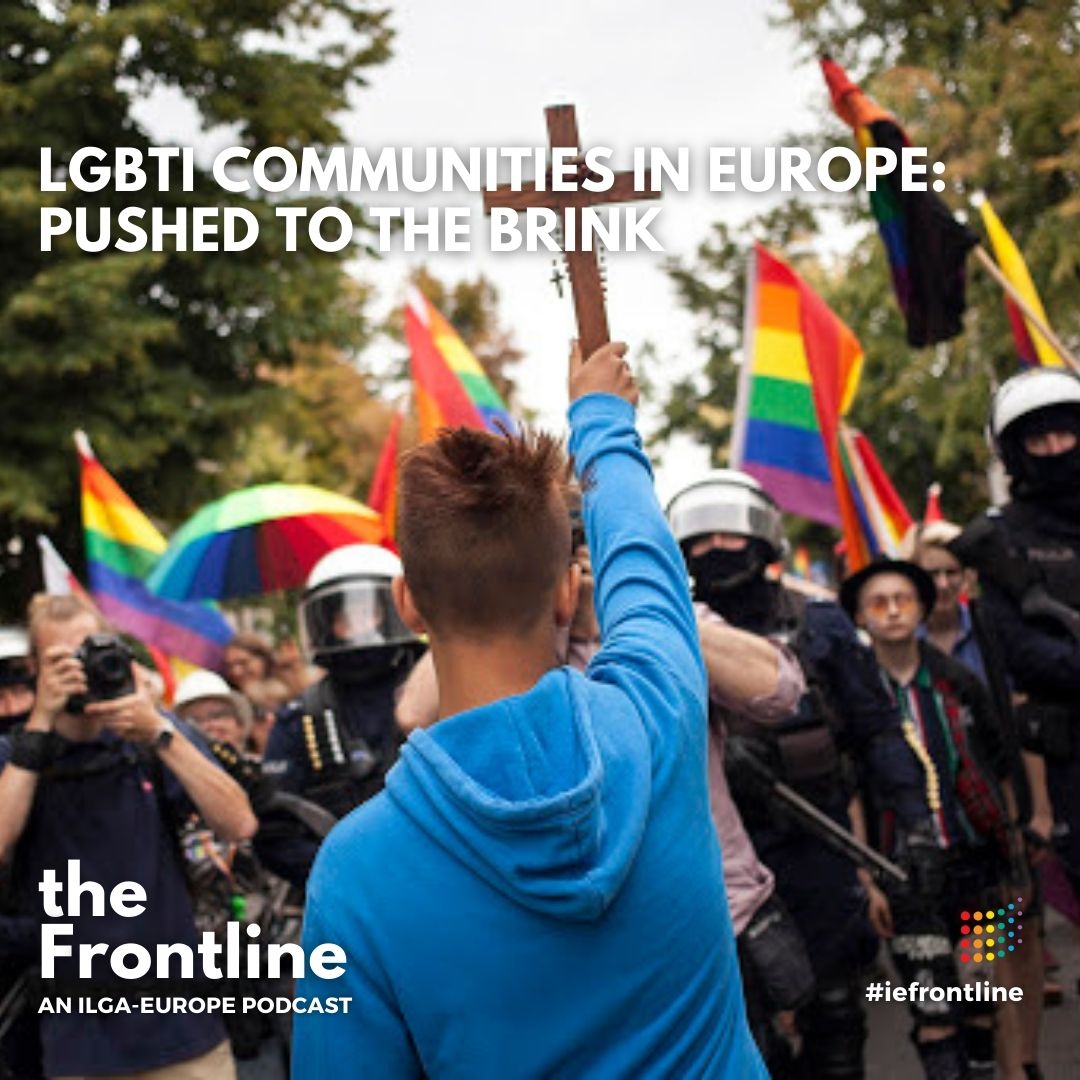
Reporting from country after country provides a glaring clarification that progress which has been taken for granted is not only increasingly fragile, but particularly vulnerable to exploitation by anti-human rights forces.
In this episode of The Frontline, we get an overview of the stark situation from ILGA-Europe’s Advocacy Director, Katrin Hugendubel. Executive Director of Transgender Europe (TGEU) talks to us about the significant growth of opposition towards trans rights across Europe; and Executive Director of ILGA-Portugal, and Marta Ramos tells us about the rise of the anti-gender movement in her country, and the ways in which LGBTI organisations have had to skew their work during the COVID-19 pandemic towards provision of basic necessities like food and shelter as many governments left LGBTI people out of their relief packages.
Listen below or click here to listen and subscribe to The Frontline on your favourite podcast platform.
The shocking state of LGBTI children’s rights in Europe
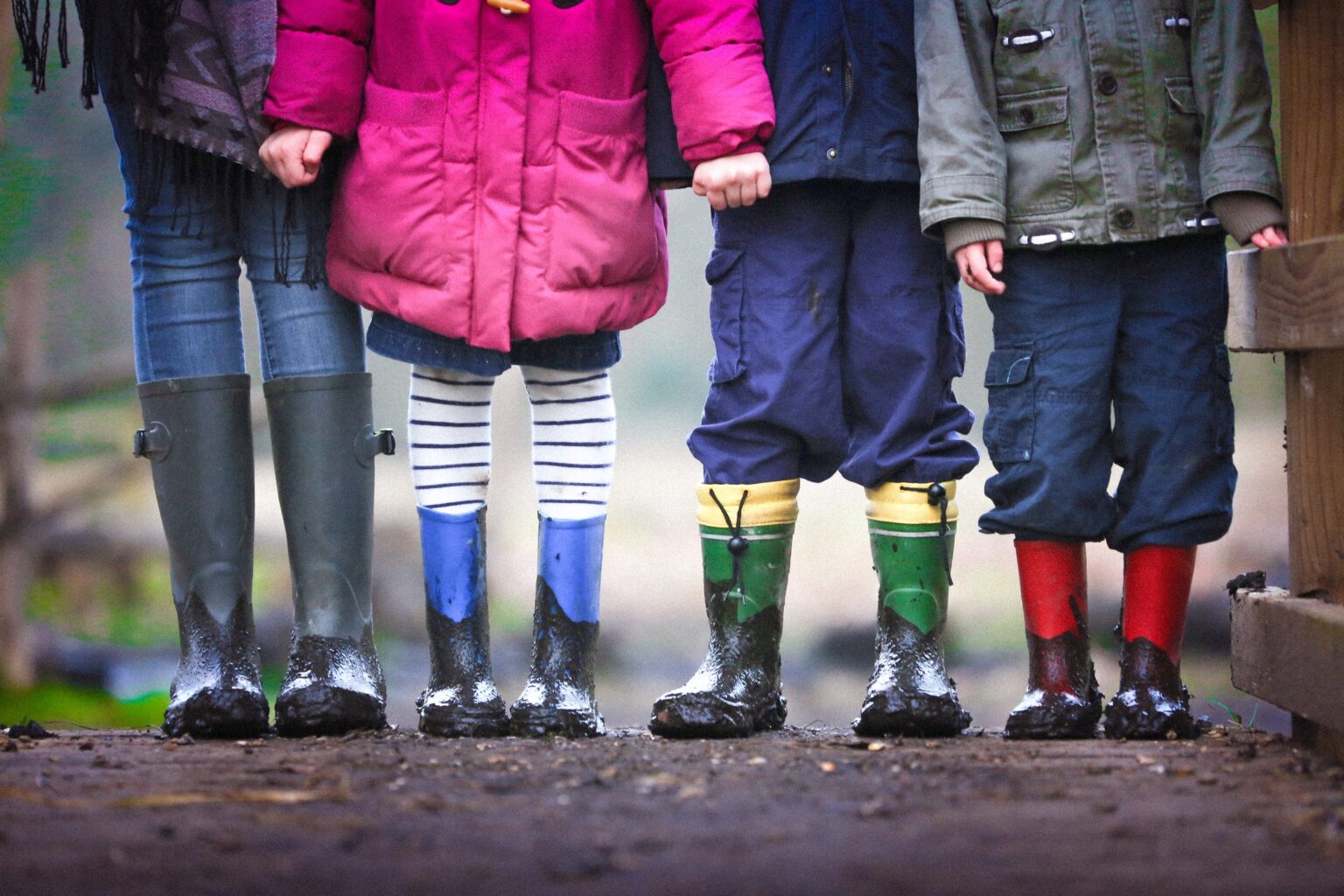
We expect all children to be protected from violence and discrimination, and to have access to appropriate legal protection, but in the EU the truth is far from this case, and LGBTI children are particularly vulnerable. Here’s why.
Children should be protected from all forms of physical or mental violence, according to the UN Convention on the Rights of the Child, the EU Charter of Fundamental Rights and the European Convention on Human Rights. However, LGBTI children and young people still face widespread discrimination and exclusion all across Europe. The COVID-19 crisis is making them more vulnerable to abuse and marginalisation.
LGBTI children, children perceived as queer, and those coming from rainbow families experience discrimination and violence at school for their gender and sexuality or that of their parents. Almost 6 in 10 students will hide that they are LGBTI, as observed in the latest Fundamental Rights Agency (FRA) survey on LGBTI people in Europe.
Sometimes, discrimination starts at home, where rejection from their families can lead to mental health problems, and often homelessness, as we have seen exacerbated by the COVID-19 crisis.
Trans young people are frequently denied legal recognition and access to transition-related healthcare, or face abusive requirements, while intersex children go through unnecessary and unconsented medical interventions, which can have life-long negative consequences, and are exposed to very high levels of stigma, which can lead to family violence, gaps in education, and homelessness.
Children in rainbow families are vulnerable
When LGBTI parents cannot get married or register their partnership, or when they cannot become parents legally, their children are left in precarious positions. If, for instance, the recognised parent dies, the child is left legally orphaned, and has no right to the care of their other unrecognised parent. This lack of legal recognition of parenthood deprives the child and their parents of various rights such as inheritance rights, the right to parental leave, visitation rights, pension rights, and the right to alimony, and can result in some children being left undocumented and at risk of statelessness.
Same-sex parents and trans parents aren’t recognised
In 12 EU countries, same-sex parents are unable to get married, and in six EU countries same-sex relationships cannot be recognised at all (Bulgaria, Latvia, Lithuania, Poland, Romania and Slovakia). Registered partnerships allow parental rights in some countries but not in others.
Recognition of trans parents is especially complicated. In many cases, there are not clear regulations and individual family situations are decided on a case-by-case basis. In just four EU countries, the recognition of trans men as fathers and trans women as mothers is fully accessible, while non-binary parenthood recognition is even more uncommon. Trans parents who cannot access legal gender recognition also cannot be recognised in their gender in relation to their children. Although legal gender recognition can be accessed in 41 countries in Europe, 20 of them require divorce before accessing it. 10 of these countries are in the EU.
In the remaining countries, parents who have their gender legally recognised may still not be able to be recognised as a parent in their gender, both when changing their legal gender before or after the registration of their child.
Trans children are left unprotected
The lack of inclusion of minors in legal gender recognition (LGR) processes or the creation of processes with additional requirements only applicable to minors (such as parental consent or judicial oversight) constitute discrimination on the basis of age and further marginalises trans children and adolescents. They are left unprotected and have a higher chance of facing discrimination in all areas of their lives.
Trans children also face additional barriers and discrimination when trying to access healthcare, particularly trans-specific healthcare, that may include counselling, hormone blockers and/or hormone replacement therapy. The FRA LGBTI survey shows that 17% of trans respondents aged 15 to 17 in the EU avoided healthcare services, while 15% have been the subject of inappropriate curiosity or comments from healthcare professionals. Discrimination in healthcare has devastating consequences on the physical and mental health of trans children, yet they and their parents often encounter prejudice, lack of information and appropriate care in general health services.
Intersex children are regularly mutilated and attacked
Intersex children are subjected to invasive medicalisation without informed consent. According to the FRA LGBTI survey, 62% of intersex respondents and their parents were not able to provide informed consent to a surgical intervention, while 49% did not provide consent for hormonal treatment. However, non-vital, non-emergency surgeries are regularly performed on intersex infants and children, and hormonal treatment is given in childhood, both of which often have devastating effects into adulthood.
At school, intersex children are subjected to physical and sexual attacks, hate-speech and bullying. The FRA survey shows that 14% of intersex children between 15 and 17 years old have experienced a physical attack in the 12 months prior to the survey and 39% of these attacks happened at school. 56% reported severe psychological problems as a result and 9% were hospitalised, making intersex children, together with trans children, the most vulnerable.
All children have the right to protection and care
Article 24 of the EU Charter of Fundamental Rights states that “children shall have the right to such protection and care as is necessary for their well-being”. It also states that actions relating to them should be taken in the child’s best interest and that every child has the right to be in regular contact with their parents, unless it is contrary to the child’s interest. As with every child, LGBTI children should be able to enjoy these inalienable rights, and deserve to grow up in a world that values and cherishes them and their families equally.
Critical time for the EU Commission to adopt a comprehensive LGBTI strategy
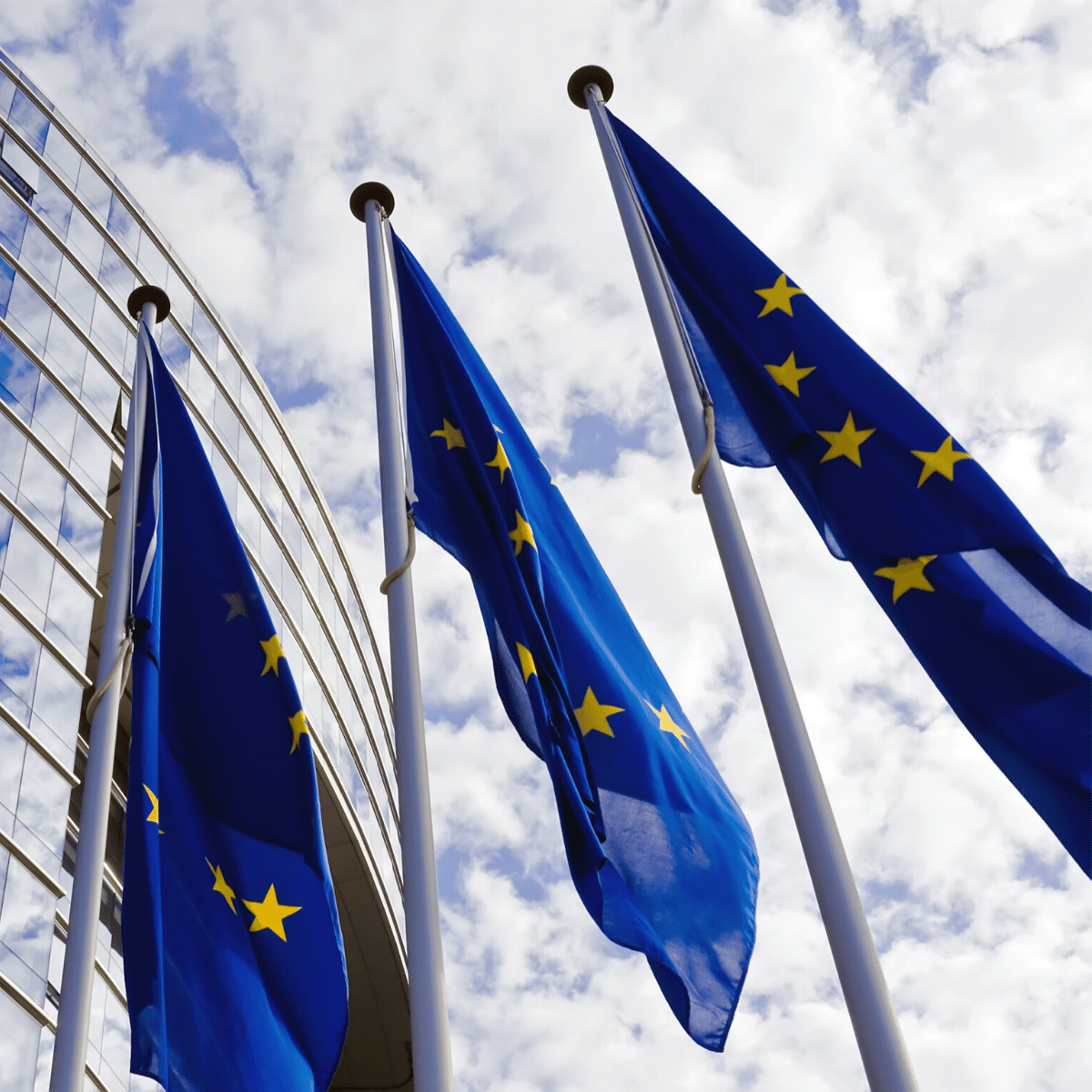
Europe is at a dangerous crossroads and that’s why this is a critical time for the Commission to adopt a comprehensive LGBTI strategy over the next five years, says ILGA-Europe, in advance of the Finnish Presidency conference on advancing LGBTI equality in the EU
On 23 September The Finnish Presidency of the Council of the European Union and the European Commission will host a high-level conference on Advancing LGBTI equality in the EU: from 2020 and Beyond, with speakers from Member States, the European Parliament, the European Commission and international NGOs. The debates and discussions of the conference will inform future policies aiming at advancing LGBTI equality in the EU.
The conference takes place at a time when the erosion of the human rights of LGBTI people along with the rise of anti-LGBT hate rhetoric in some EU countries is putting European democracy at risk and eroding core founding principles of the EU such as equality, freedom and human dignity. Over the last year, the Polish LGBTI community has been pulled into the middle of political confrontations that are stoking hatred, inciting violence and negatively impacting lives. In the run-up to the European elections and now Parliamentary elections in October, political actors from Poland’s leading Law and Justice (PiS) party – including government ministers – are carrying out a demonisation campaign against the LGBTI community whilst closely siding with conservative religious leaders.
The developments in Poland do not stand alone. In Europe and around the world, there has been a sharp rise in hate and divisiveness, often targeting marginalised groups such as LGBTI people, while in some countries regressive legislation is being introduced. In Bulgaria, the means for trans people to change their names or gender markers on official documents have been removed. In Croatia, government failed to renew action plans on equality.
Meanwhile, the governments of Bulgaria, Hungary and Turkey have failed to uphold fundamental civil and political rights such as freedom of assembly at LGBTI Pride events, freedom of association and protection of human rights defenders.
Anti-LGBTI discourse and legislation are increasingly entering the global political stage and influencing societies, propagated by populist leaders stoking fear and breeding intolerance for the sake of political gain. Politicians in the Bulgarian city of Plovdiv, one of this year’s European Capitals of Culture, campaigned to block an LGBT exhibition. Attacks by the far-right Vox party on LGBTI rights are testing years of political consensus on the issue in Spain, which in 2005 became only the third country in the world to allow same-sex marriage.
The rights and freedom of LGBTI communities is a litmus test of EU democracy and values, and upholding those rights and freedoms is core to fundamental EU values.
That is why it is vital at this critical time for the Commission to stand strong on fundamental rights and not let a minority of states erode and undermine EU values. Now more than ever it is time for the Commission to adopt a comprehensive LGBTI strategy that is wholly intersectional and consults with Parliament and civil society on how to mainstream LGBTI rights across its programmes for the next five years.
An EU LGBTI strategy, adopted and owned by the political leadership of the European Commission would give a very important political sign that the EU will not only continue but also strengthen its work on protecting and advancing the human rights of LGBTI people in the European Union. Also, it will help all Directorate Generals of the European Commission to feel empowered to ensure full implementation of existing commitments and to plan proposals and actions that will advance LGBTI human rights and equality.
A small number of governments may be pushing back on LGBTI rights and freedoms, and engaging in hateful rhetoric, but they threaten the larger body of states that are on the side of human rights at a critical time in Europe and the world.
Says Evelyne Paradis, Executive Director of ILGA-Europe: “The governments of some countries and other forces within the EU are overtly turning the tide on LGBTI and other minority rights, seeking to replace democracy and diversity with ‘traditional values’. Their voices may be loud, but we know that most member states want to see continual progress towards equality for LGBTI people in Europe.
“The rights and freedom of the LGBTI community are not separate from the rights and freedom of all who live in Europe, and the erosion of those rights is a marker for the erosion of all fundamental human rights. That is why now, more than ever, we need the next European Commission to adopt an EU-level LGBTI strategy.”
In attendance at the Advancing LGBTI equality in the EU: from 2020 and Beyond conference will be the following government representatives:
- Thomas Blomqvist, Minister for Nordic Cooperation and Equality, Finland
- V?ra Jourová, Commissioner for Justice, Consumers and Gender Equality
- Ingrid van Engelshoven, Minister for Education, Culture and Science, The Netherlands
- Terry Reintke, MEP, Co-President of the LGBTI Intergroup of the European Parliament, Greens/EFA (Germany)
- Roberta Metsola, MEP, EPP (Malta)
- Edward Zammit Lewis, Minister for European Affairs and Equality (Malta)
- Rosa Lopes Monteiro, Secretary of State for citizenship and equality, (Portugal)
- Jovana Trencevska, State Secretary (North Macedonia)
- Michael O´Flaherty, Director, Fundamental Rights Agency (FRA)
Expression Abridged – new report from IGLYO
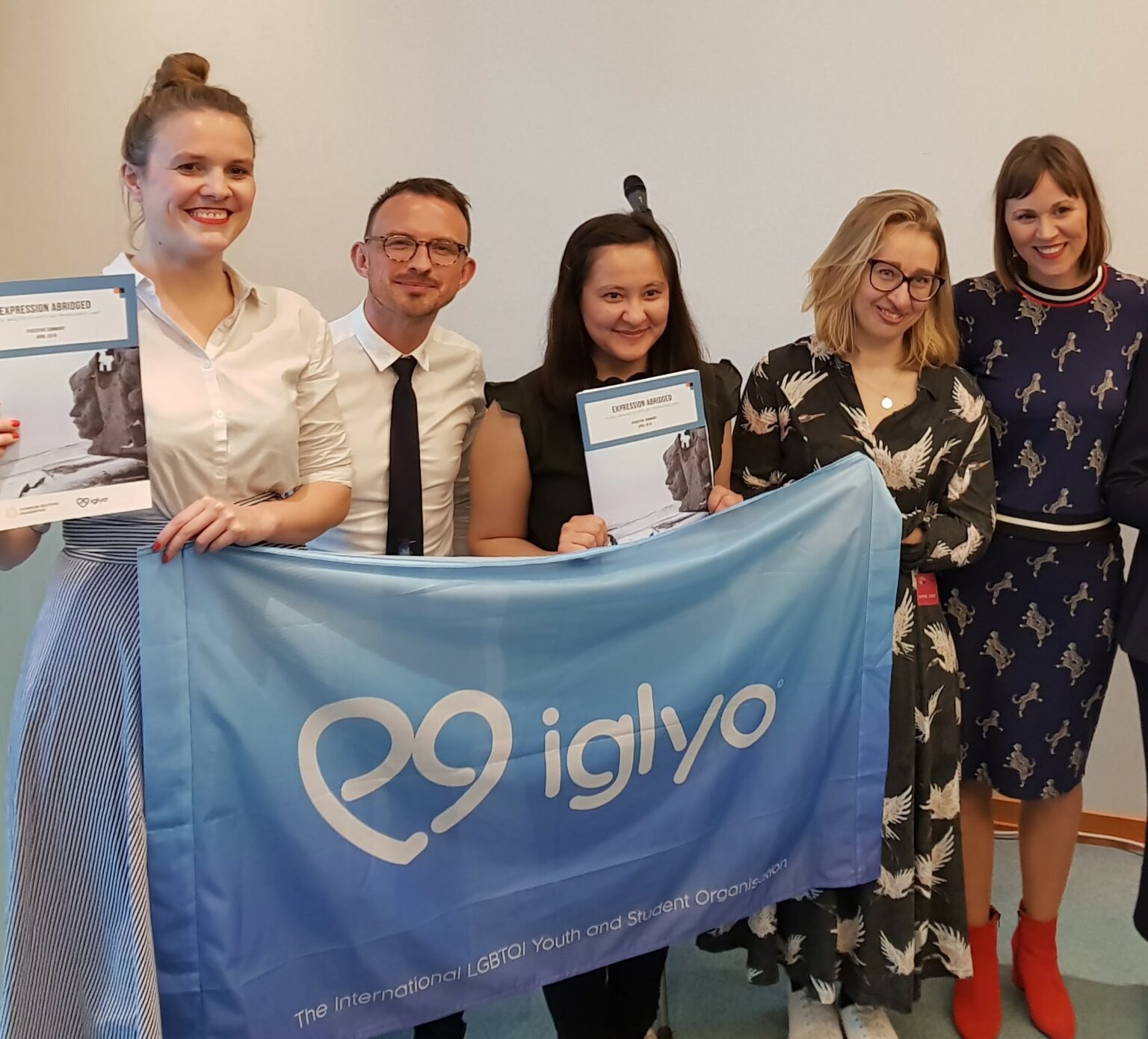
iGLYO’s latest report “Expression Abridged” is essential reading for LGBTI activists, researchers, academics and the media alike.
Officially launched at the European Parliament in Brussels on 24 April, the report contains a thorough legal analysis of the anti-LGBTI ‘propaganda’ laws that exist or have been proposed in Europe and Central Asia.
IGLYO’s Capacity Building Officer Tudor Kovacs pointed out that Expression Abridged is not only a useful resource, but can also be a valuable tool for activists in planning their activities or when challenging opponents who try to enforce or submit these laws for inclusion on the legislative agenda.
Everyone at the event was reminded that the Russian federal legislation, enacted in 2013, might be the most infamous of the so-called ‘anti-propaganda’ laws but it is not the only one. A bill seeking to introduce even harsher penalties is still being considered by Kyrgyzstan’s’ parliament – a fact that LGBTI activists Nadira and Anastasia underlined at the launch.
- You can access the Expression Abridged executive summary here.